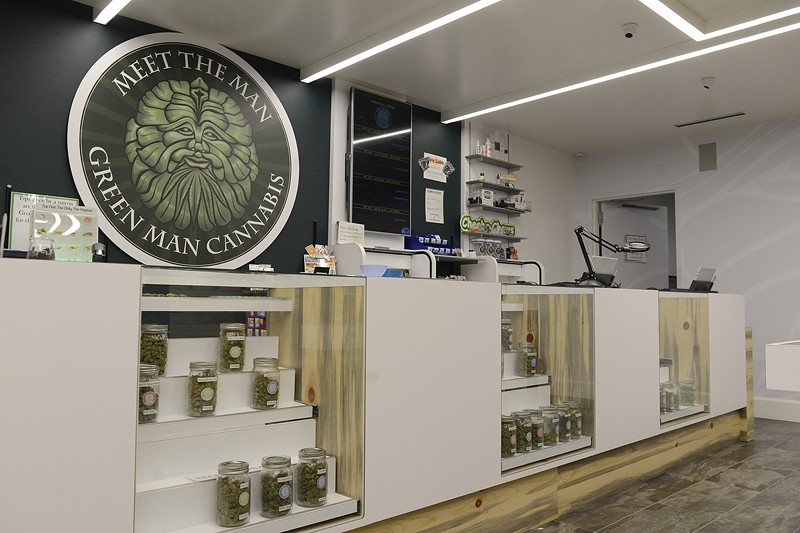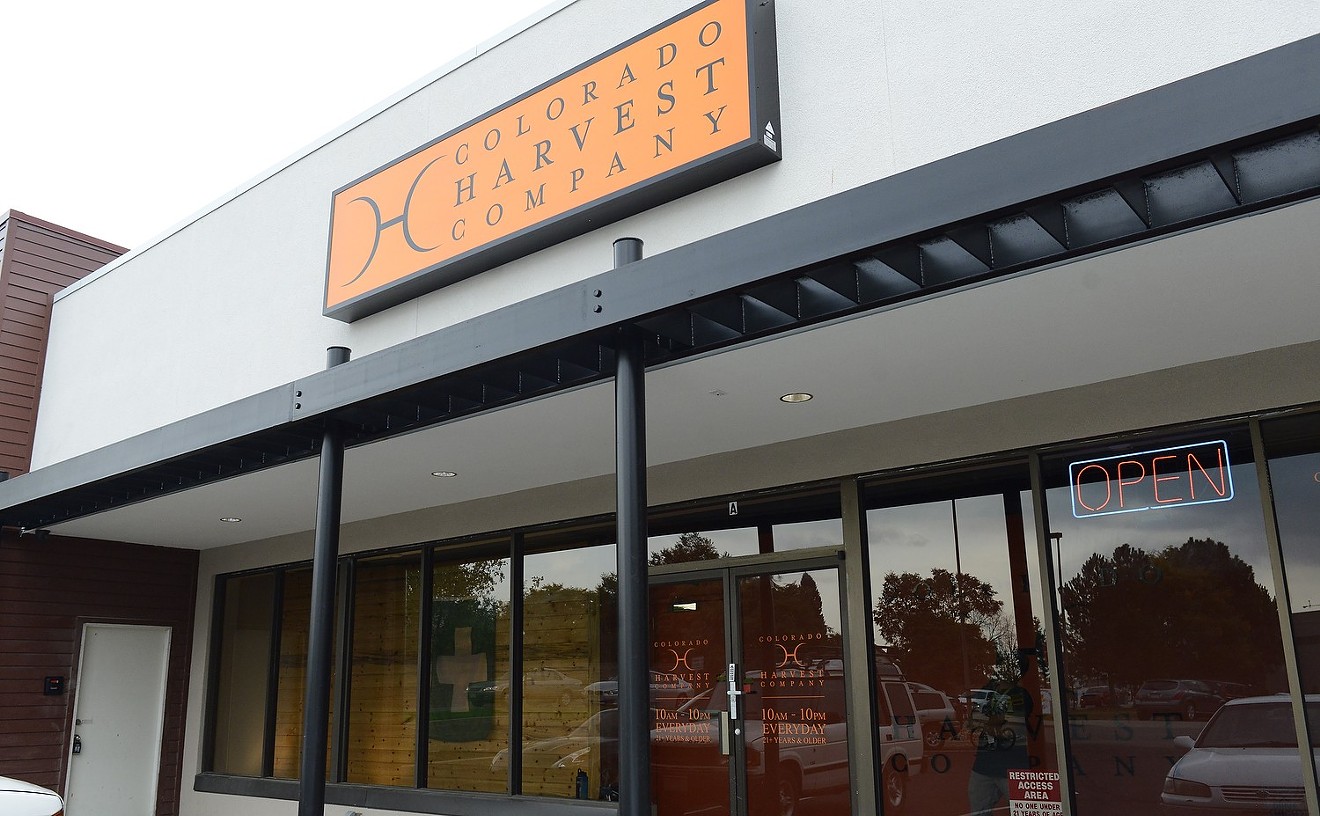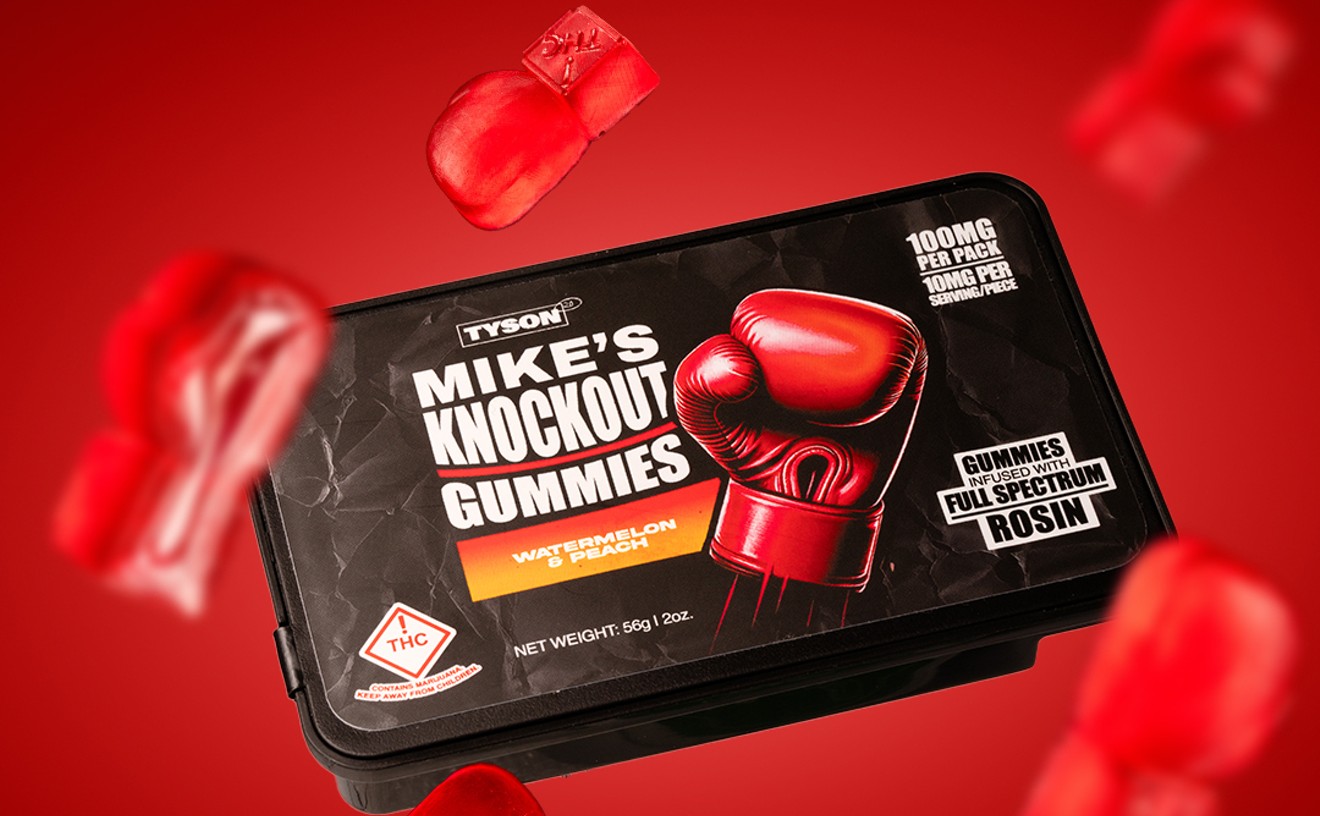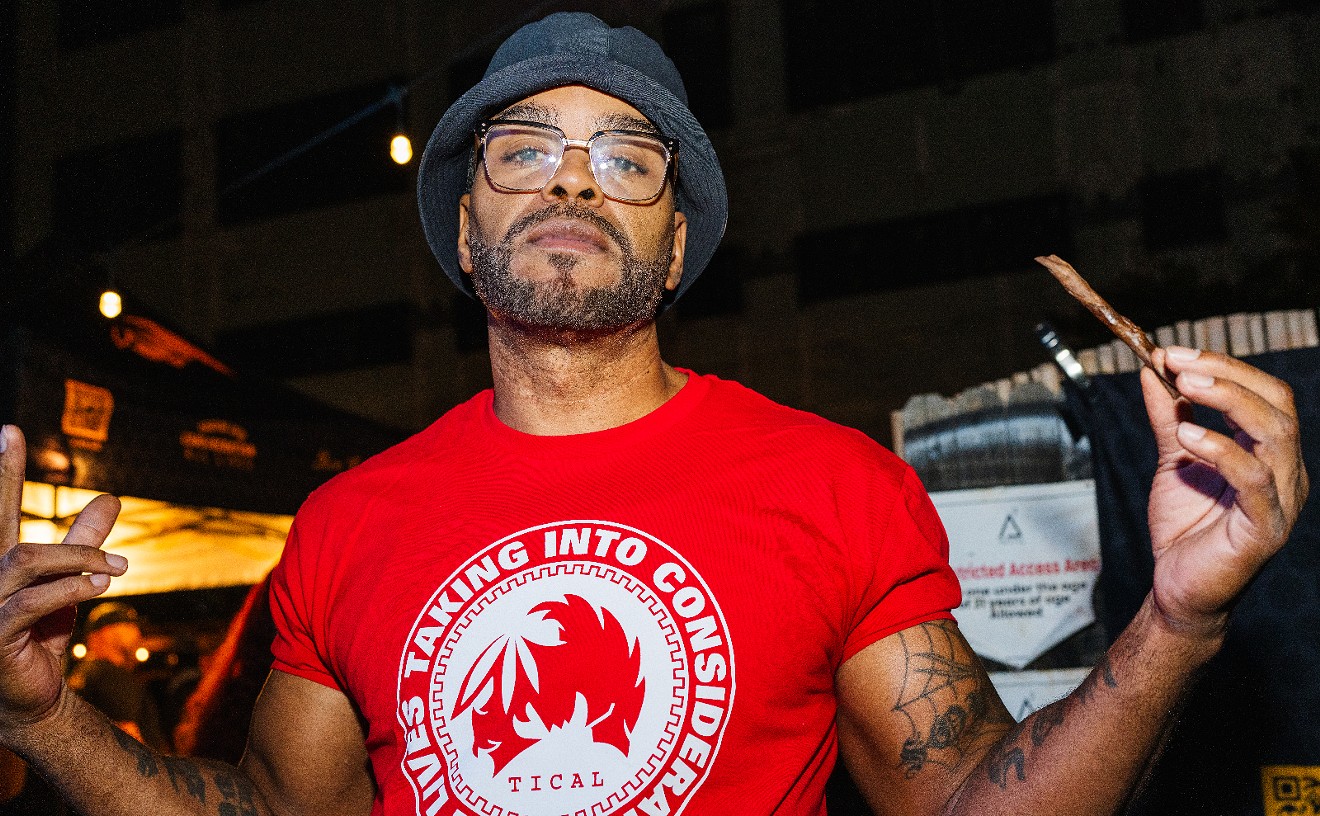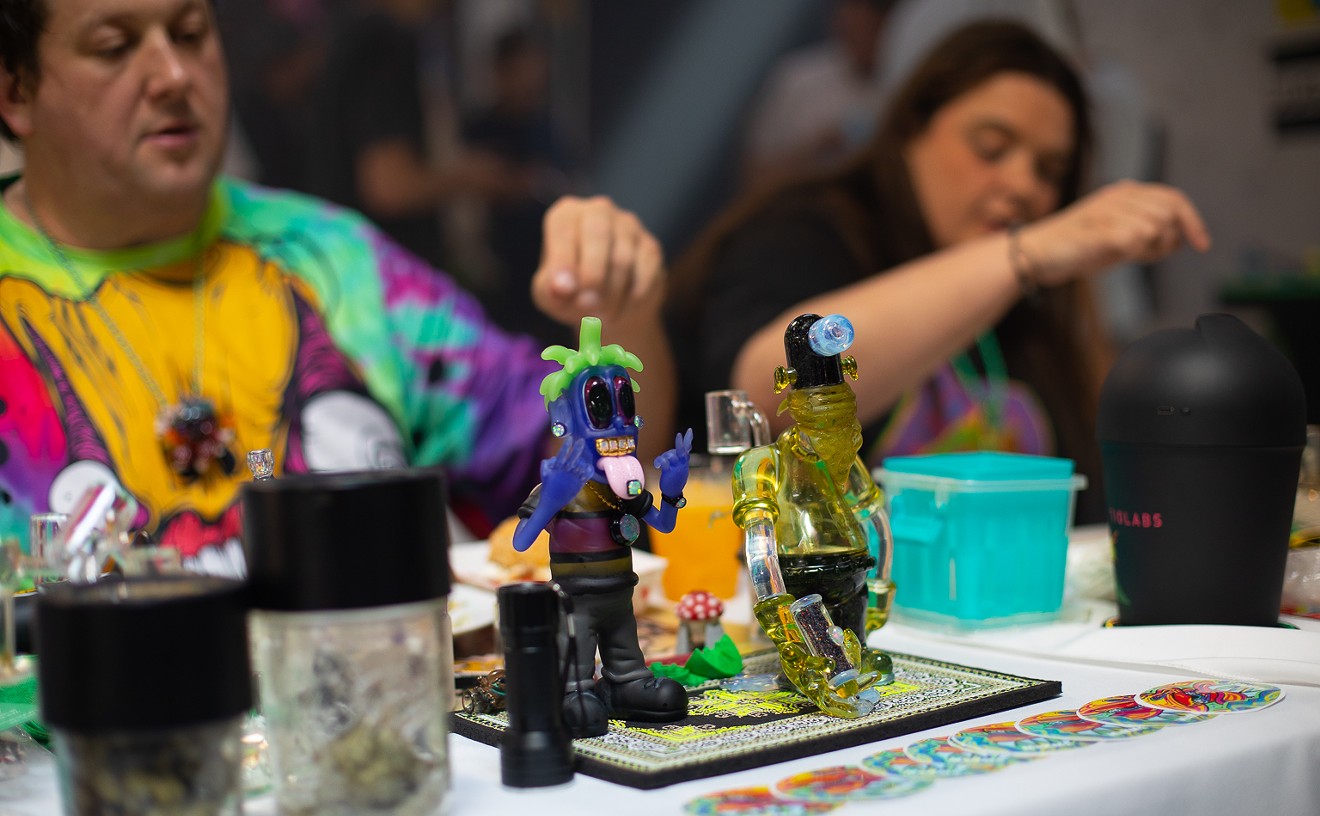As we approach our favorite unofficial holiday on April 20, it's nearly impossible to know the immediate future of Colorado's cannabis industry, with numerous regulatory and societal changes (and un-changes) surrounding the plant less than a month into the pandemic. But weeds are tough plants — and essential ones, too, according to the State of Colorado. To get more perspective, we caught up with a half-dozen cannabis trailblazers and OGs, all of whom were here before retail was legalized and the money quickly followed. Some have adapted to the evolving culture, others have refused to compromise, but all play a role in how we view the plant now — and how 4/20s of the future might look. Here's the third in our "Rolling With the Punches" series.
Colorado produced a lot of cannabis talent in the early years of legalization, but the herd has thinned as more outsiders with money come in. Many of the dispensaries that opened during the medical-only days are gone, and the ranks of the first recreational stores shrink by the month. But Green Man Cannabis co-founder Corey Buffkin has been here since the beginning, and he doesn't plan on leaving any time soon.
After moving to Evergreen as a teenager in the early ’90s, Buffkin and his brother, Ryan, began growing medical marijuana. That soon blossomed into dispensary ventures, which he's turned into ownership stakes in several businesses in Oregon and Nevada, on top of Colorado ventures. But Colorado is still home, and as Buffkin's cultivations go from 10,000 to 150,000 square feet, he proves that there's still a spot for legal pot's OGs...but you'll have better chances if you play along.
Westword: Let's say you're a first-time dispensary visitor now, compared to 2014, or even in the medical-only days of ten years ago. How has the feeling of walking into a dispensary changed?
Corey Buffkin: It used to feel like a lot more of a grassroots scene. If you go back to ’09, when it was all medical, if someone was unsure of what they wanted to buy, we could say, "Hey, come hang out in the back and smoke it," and we could do that! Then they could make their choice — but it was also a way for people to get to know their dispensaries. Back then, most of the owners were on site, hanging out. Now you won't find them there, because their office or headquarters are somewhere else.
Just the feeling of being there has changed, too. You could smell and touch flower, which we're definitely going to get away from now, but it was just more of a free-for-all. Sometimes you'd see people drinking or smoking in the back of dispensaries ten years ago, but now it's more corporate. You still have those personal connections, but it's not like it used to be.
How has that change extended into the people behind the scenes?
A lot of the original guys who were out here at the beginning of this aren't here anymore; they've sold out. Industry events look different now, and they're made up of a lot of corporate guys and people from Canada or back east. Everyone thinks they're better than everybody else: They've got the best plans, the best way to grow, and they're closing a $100 million deal. Most of the time, those same assholes fall to the wayside. This is a hard business to just jump into.
You're already hearing terms like "market disrupter" and "innovator." Everyone's next idea is the best, but at the end of the day, we're just growing and selling cannabis. Some of the technology is good, but why would I spend $1.3 million to totally redo my cultivation? To real growers, that's not little money.
Do you miss anything about those earlier, wilder days? It seemed like back then you had to worry about the government, but now it's more about competition.
Most of the people you'd talk to [from] early on would say they liked things better back then. Right now, as a business owner, you're always trying to figure out who the next big player is in the market and how much money they have. You're not looking at Bob down the street as your competition anymore; it's all much bigger entities without faces to them. Knowing your competition nowadays is vaguer than it used to be.
Let's say the Corey Buffkin from 2008 wanted to start a cannabis business today. Do you think he could? How different would that look?
I think it'd be more difficult today. We do have a lot more outlets for products in Colorado now, but there's also much more competition. There are high-end grows now. The building we're in cost $15 million [to build] as it sits right now, so the amount of capital you need to raise makes it more difficult. In 2009, we could start a grow at 5,000 to 10,000 square feet, and that was pretty good size. You could get that off the ground for $500,000 from small investments between your partners, friends and family, and then you went to work. Now that $500,000 wouldn't touch anything; it's good for one vegetation room.
Over ten states have legalized recreational cannabis, but you don't see weed sales in states other than California putting up numbers like Colorado. Why does Colorado love weed so much?
Well, 4/20 was always big in Denver, because of all the events we had, between the rally and the Cannabis Cup. Then you have spring break tourism right as 4/20 hit: Being a nice destination doesn't hurt. If this were South Dakota, we wouldn't have as many sales, because no one wants to go there. Las Vegas does incredible recreational sales because of the tourism, but sales are really down in Nevada right now because the Vegas strip is closed down for coronavirus. And so is Colorado.
The most culture for marijuana is still in California. We have some here, as well, and we were first to market. Being first and being a nice destination are why I think Colorado sales are always strong.
What has changed the most about Colorado cannabis since you started?
It's gotten bigger and more expensive to participate in. A lot of consolidation and selling off by the original people has been happening here. Now that public investors are allowed in, it's happening even more. You're not seeing Colorado natives open marijuana businesses anymore. It's all investment funds. We're also seeing a lot more mergers so brands can increase their footprints, sometimes even outside of Colorado.
Owning a marijuana business is not all it's cracked up to be. You're seeing a lot of fracturing in cannabis corporations right now, which is actually good for the smaller guys. We don't want to get to a point where Colorado is controlled by five operators.

Audio By Carbonatix
[
{
"name": "Air - MediumRectangle - Inline Content - Mobile Display Size",
"component": "12017618",
"insertPoint": "2",
"requiredCountToDisplay": "2",
"watchElement": ".fdn-content-body",
"astAdList": [
{
"adType": "rectangle",
"displayTargets": "mobile"
}
]
},{
"name": "Editor Picks",
"component": "17242653",
"insertPoint": "4",
"requiredCountToDisplay": "1",
"watchElement": ".fdn-content-body",
"astAdList": [
{
"adType": "rectangle",
"displayTargets": "desktop|tablet"
},{
"adType": "rectangle",
"displayTargets": "desktop|tablet|mobile"
}
]
},{
"name": "Inline Links",
"component": "18838239",
"insertPoint": "8th",
"startingPoint": 8,
"requiredCountToDisplay": "7",
"maxInsertions": 25
},{
"name": "Air - MediumRectangle - Combo - Inline Content",
"component": "17261320",
"insertPoint": "8th",
"startingPoint": 8,
"requiredCountToDisplay": "7",
"maxInsertions": 25,
"watchElement": ".fdn-content-body",
"astAdList": [
{
"adType": "rectangle",
"displayTargets": "desktop|tablet"
},{
"adType": "rectangle",
"displayTargets": "desktop|tablet|mobile"
}
]
},{
"name": "Inline Links",
"component": "18838239",
"insertPoint": "8th",
"startingPoint": 12,
"requiredCountToDisplay": "11",
"maxInsertions": 25
},{
"name": "Air - Leaderboard Tower - Combo - Inline Content",
"component": "17261321",
"insertPoint": "8th",
"startingPoint": 12,
"requiredCountToDisplay": "11",
"maxInsertions": 25,
"watchElement": ".fdn-content-body",
"astAdList": [
{
"adType": "leaderboardInlineContent",
"displayTargets": "desktop|tablet"
},{
"adType": "tower",
"displayTargets": "mobile"
}
]
}
]

